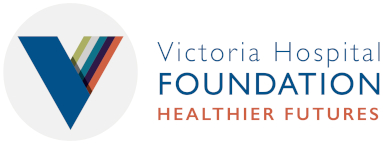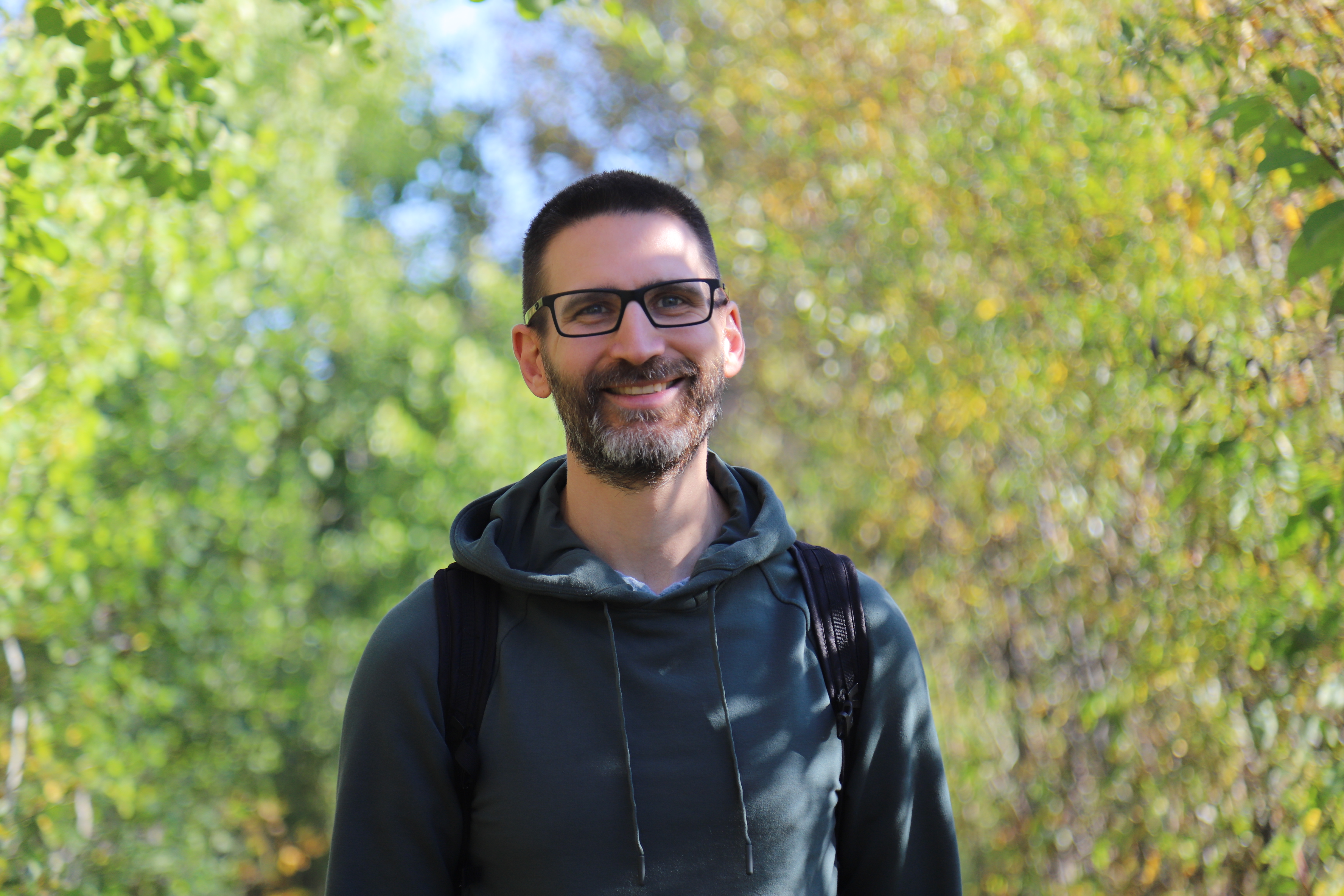Point-of-care ultrasound training helps to improve efficiency and add comfort for clients at ACCESS Fort Garry
As a physician assistant at ACCESS Fort Garry’s Primary Care Clinic, Mathew Christian saw the need for further training to better assess and treat the patients he sees. This is why he chose to complete a point-of-care ultrasound training program. But what exactly is point-of-care ultrasound? Point-of-care ultrasound refers to the practice of trained medical professionals using ultrasound to diagnose a medical condition wherever the patient is being treated, whether that’s in a modern hospital, an ambulance, or a remote village.
“The allure of point-of-care ultrasound is that it can quickly provide useful clinical information to better assess and diagnose medical conditions in real-time. This diagnostic tool can often provide critical information, which in the past would require sending a patient to an x-ray clinic or the hospital ultrasound department. It saves time for the patient while also reducing the burden on the healthcare system,” Mathew said.
Mathew Christian is just one of the recipients of Victoria Hospital Foundation’s 2023 Education & Professional Development Grants. Since 2003, Victoria Hospital Foundation has granted over $200,000 in Education & Professional Development Grants to support staff education at Victoria Hospital, ACCESS Fort Garry, and Victoria Lifeline. The funds can be used to finance a variety of educational opportunities including continuing education, leadership training, conferences, and seminars. The Foundation is grateful to all the donors who make it possible for us to continue supporting and promoting staff education.
Mathew notes that the use of point-of-care ultrasound is not the same as that of diagnostic ultrasound at a hospital, as it is used to answer a binary yes or no question such as ‘is there fluid on the lungs?’, rather than provide a detailed anatomical assessment. Mathew spoke to this saying, “Point-of-care ultrasound is basically the ‘fast food’ of ultrasound imaging, it’s quick and efficient but has a limited menu. It’s an additional piece of information that makes us more confident in our diagnosis, and provides patients with added comfort.”
Since completing the training program, Mathew has taken on the role of clinical site lead for the Department of Family Medicine specific to point-of-care ultrasound training at ACCESS Fort Garry. He is responsible for overseeing the second-year family medicine residents to ensure they obtain the minimum number of diagnostic scans and provide instruction to them as needed in the use of point-of-care ultrasound.
“In just a few minutes I can obtain helpful diagnostic information that previously would not have been available, it allows for a more accurate diagnosis, better-tailored treatments, and improved patient care. I’ve only had this training for about a month now and I’ve already had the opportunity to use point-of-care ultrasound to diagnose conditions related to congestive heart failure, cellulitis, deeper skin infections, and also to rule out worrisome conditions like abdominal aortic aneurism,” Mathew said.
Now that Mathew has point-of-care ultrasound certification, he is hoping to complete an internship with the program where he completed his training. This will allow him to further hone his ultrasound skills and potentially become a certified instructor himself.
Education offers growth and new insights for geriatric mental health nurse.
Emmanuel Uwaebuka has been a nurse at Victoria Hospital since 2018. As a father of three and an immigrant from Nigeria, he has first-hand experience with the challenges international nurses face when they come to Canada. Although Emmanuel obtained his license much easier than many and has been able to practice in Canada since 2014, his Nigerian education is not recognized at the Canadian level.
Emmanuel completed five years of study in Nigeria, obtaining diplomas in both General Nursing and Psychiatric Nursing. As these diplomas are not recognized as degrees in Canada, Emmanuel applied for a grant from Victoria Hospital Foundation to pursue the completion of a Canadian Bachelor's degree in Psychiatric Nursing. Emmanuel believes that obtaining a Canadian degree will create endless opportunities for him. He expressed his concern about being at a disadvantage when applying for positions due to not being educated in Canada – his goal is to avoid a situation where his lack of Canadian education becomes a hindrance to his career growth.
Emmanuel is currently working in the geriatric mental health unit at Victoria Hospital while completing his remaining five courses, and he can’t say enough about how much he loves his work. “It gives me a great sense of joy and enjoyment, and I especially love working in the geriatric unit because the patients have a lot history and stories to share.” Although he hasn't completed his degree yet, what he has learned so far has given him new insights on how to approach patients with challenging conditions like borderline personality disorder.
“You can’t see the patient as their disease, disorder or mental health condition, you have to see them as individuals you can also learn from,” Emmanuel reflected.
Along with new insights on patient approach, Emmanuel has acquired valuable leadership skills. He has learned to adopt a management approach that emphasizes the importance of getting team members involved in the decision-making process, rather than simply assigning tasks to them.
Emmanuel is hoping to finish his program by April 2024, and as he looks to his future, he envisions utilizing his newfound patient approach and leadership skills in the roles of nurse educator or clinical resource nurse at Victoria Hospital.
Victoria Hospital Foundation’s Education and Professional Development Grants enable recipients, like Emmanuel and Mat, to further their learning and opportunities, develop skills, and make a positive impact on patient care in our community. For a complete list of 2023 Education & Professional Development Grant recipients, visit https://bit.ly/3MwQpi7



